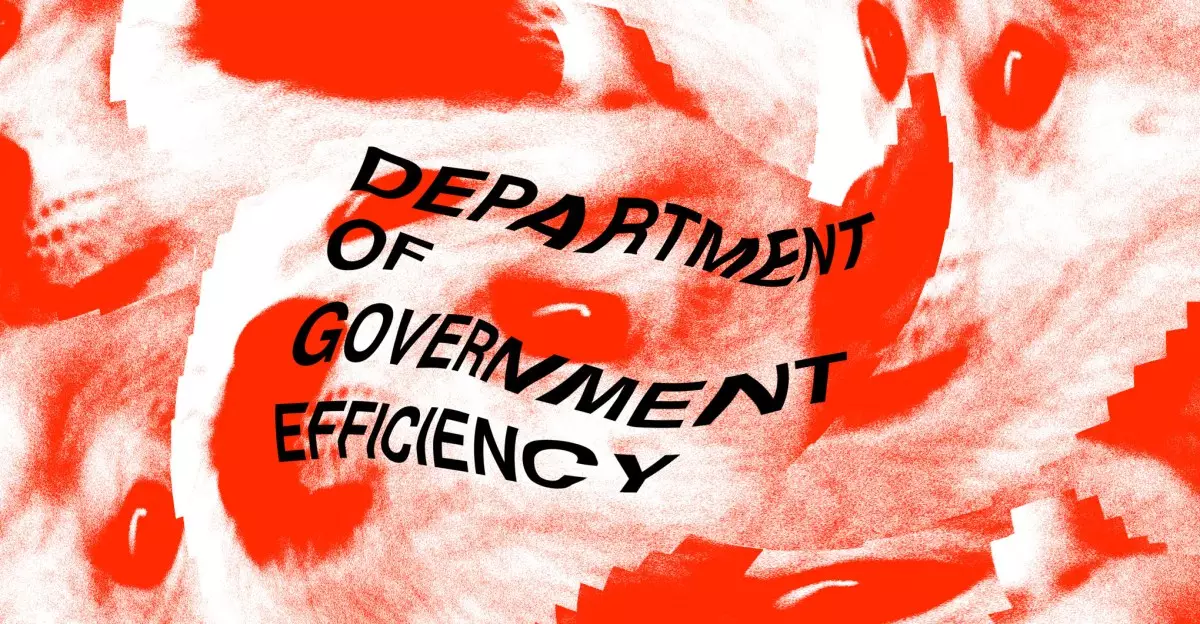In a bold and controversial move, the Department of Government Efficiency (DOGE), spearheaded by Elon Musk, is championing an initiative that aims to create a comprehensive “mega API” designed for seamless access to Internal Revenue Service (IRS) data. This initiative has surfaced amid criticisms regarding transparency in government data and the modernization of bureaucratic practices. The move is poised to revolutionize how various stakeholders—ranging from third-party software developers to governmental agencies—interact with intricate IRS data sets.
The proposed API would not merely serve as a conduit for data; it aims to transition IRS operations into a cloud platform, enhancing data access and workflow efficiency. However, the ambitious nature of this project raises numerous concerns. For one, it challenges the traditional frameworks that govern the usage of sensitive taxpayer information, casting a shadow over privacy safeguards while hinting at a future where data flows freely between governmental institutions and private entities.
A Hackathon with High Stakes
Set to kick off soon, DOGE’s hackathon seeks to mobilize a cadre of IRS engineers to expedite the development of this mega API within an audacious timeline of 30 days. Although the idea of innovation through collaborative coding events sounds enticing, the feasibility of such a rapid development phase has been met with skepticism. Insiders have expressed frustration, claiming that the proposal is not only unrealistic but could potentially cripple current IRS operations, which are already strained.
Further complicating this scenario are the discussions surrounding partnerships with powerful third-party data firms, notably Palantir—a name synonymous with expansive data analytics and, at times, controversial surveillance practices. The implications of such partnerships introduce profound questions about the ethical considerations of leveraging taxpayer data for purposes potentially far removed from their original intent.
Political Ramifications and Public Trust
The initiative is not devoid of political controversy. Recent reports indicate that politicians, including Senator Ron Wyden, have pushed back against DOGE’s attempts to gain unregulated access to IRS data. There’s an underlying fabric of distrust, given the potential for misuse of tax data, especially in light of past government initiatives aimed at immigration enforcement. Critics argue that this mega API could be weaponized to target vulnerable demographics, thus undermining the foundational tenets of public trust in the IRS.
The criticisms extend to the individuals driving this project, pointing out their lack of extensive experience within government structures, IRS systems, or even the complexities of tax regulation. Opponents lament that this endeavor represents a perilous intersection of inexperience and ambition, where sophisticated technological designs meet the layers of bureaucratic intricacies—an equation that seldom leads to success.
The Future of IRS Operations
As ambitious as this mega API may be, it invites a broader inquiry into the implications for IRS operations and taxpayer relations moving forward. While innovation is undoubtedly needed in governmental operations to enhance efficiency, the ethical and practical ramifications of such initiatives cannot be ignored. The challenge lies in balancing modernization with respect for the citizens’ right to privacy and security of their personal data. The future of IRS operations may hinge on how thoughtfully these ideas are implemented, steering the agency toward either a path of enlightenment or into the murky waters of digital overreach.


Leave a Reply